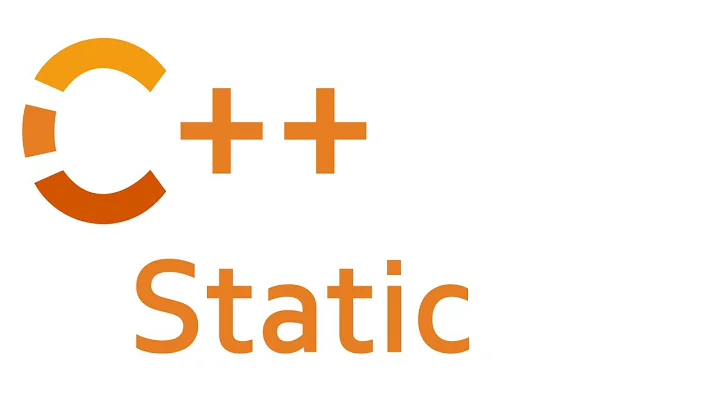Static vs global
Solution 1
i has internal linkage so you can't use the name i in other source files (strictly translation units) to refer to the same object.
j has external linkage so you can use j to refer to this object if you declare it extern in another translation unit.
Solution 2
i is not visible outside the module; j is globally accessible.
That is, another module, which is linked to it, can do
extern int j;
and then be able to read and write the value in j. The same other module cannot access i, but could declare its own instance of it, even a global one—which is not visible to the first module.
Solution 3
The difference is that i has internal linkage, and j has external linkage. This means you can access j from other files that you link with, whereas i is only available in the file where it is declared.
Solution 4
i will have static linkage, i.e., the variable is accessible in the current file only.
j should be defined as extern, that is
extern int j;
in another header file (.h), and then it will have external linkage, and can be accessed across files.
Solution 5
Scope of static variable/function is within the same file despite you include the file as part of a different source file.
Scope of global variable is throughout the files in which it is included. To include the variable in a different source file, we use extern before the variable declaration. No memory is allocated again for the variable in this case.
extern is used to declare a C variable without defining it. extern keyword extends the visibility of the C variables and C functions. Since functions are visible through out the program by default, the use of extern is not needed in function declaration/definition. Its use is redundant.
Related videos on Youtube
Comments
-
Vijay about 4 years
If I have a C file like below, what is the difference between
iandj?#include <stdio.h> #include <stdlib.h> static int i; int j; int main () { //Some implementation }-
avakar over 14 yearsRead answers to this question: stackoverflow.com/questions/1358400/…
-
 phuclv almost 7 years
phuclv almost 7 years
-
-
Thomas Matthews over 14 yearsIs the 'extern' declaration necessary?
-
wallyk over 14 yearsIt depends on the implementation. Use of
externis guaranteed to not cause trouble, provided one module has the symbol as non-externand public (which allocates it). Early Unix implementations merged symbols with the same name—much like a Fortran common—soexternwas not required. -
Jupiter almost 11 yearsNote that "Not visible" doesn't mean its out of scope. That means that if you would declare an i in a different compilation unit and you would remove the static i from your .c file the global i would be visible to your .c file. In contrast, if the global i were out of scope it wouldn't matter if you would have a static i declared in your .c file. The global one would never be visible. static i taking precedence over a global i defined in another compilation unit is called 'shadowing'. It also happens with function locals and is not a c++/c-only thing.
-
 Florian Castellane over 7 yearsthere shouldn't be a runtime difference if you are doing the same thing, as the compiler might generate the same code. Compilation might be slightly longer with a global though, since it has a wider scope.
Florian Castellane over 7 yearsthere shouldn't be a runtime difference if you are doing the same thing, as the compiler might generate the same code. Compilation might be slightly longer with a global though, since it has a wider scope. -
pmor over 3 yearsIs it possible to programmatically determine the linkage of any arbitrary variable at compile time (potentially using compiler's extension) or at run time? See: stackoverflow.com/q/65520719/9881330.
-
 Abdel Aleem almost 3 yearsWhy do I need to use "extern" to declare "j"? Does this mean that "int j;" is a defintion and not a declaration?
Abdel Aleem almost 3 yearsWhy do I need to use "extern" to declare "j"? Does this mean that "int j;" is a defintion and not a declaration?






